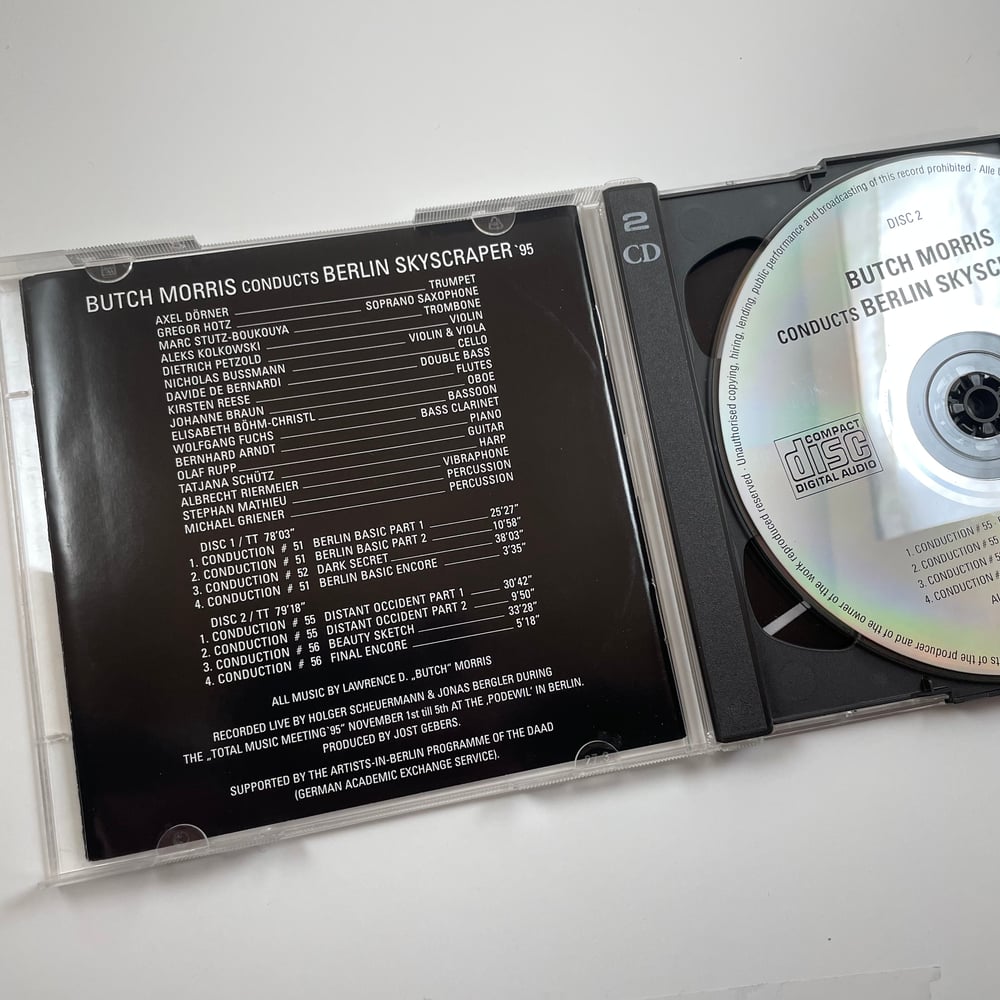CD: Butch Morris conducts Berlin Skyscraper ‘95 FMP 2cd - Rare Jazz / Classical




2CD VG+ overall disc 1 and case Vg+, Disc 2: Ex+
"American composer Lawrence "Butch" Morris, who has died of cancer aged 65, drew on the talents of players from many backgrounds, including US and European jazz, Turkish sufi music, Japanese kabuki theatre, and classical music, dance and poetry. Morris described his approach as "an improvised duet for ensemble and conductor". Although he steered these encounters with a baton, his sign language was a homegrown technique he dubbed "conduction" – the definition of which has variously been given as a fusion of conducting and improvisation, and of combustion, ignition and propulsion. Morris staged more than 150 conductions (most of them simply entitled by their number in the sequence) in more than 20 countries in as many years.
His methods were a hybrid of conducting gestures borrowed from Horace Tapscott, Charles Moffett, Sun Ra, Lukas Foss and the electronics and computer composer Larry Austin. When he conducted a pedigree ensemble of British improvisers at the Southbank Centre in London in 1997, Morris revealed just how unusual this approach was. He would imperiously summon an explosively dissonant chord from the band in the midst of an intimate conversation between a few of the members, or coax a cellist into high, softly squealing sounds against the lilt of a harp – halting the impending intrusion of the others by admonishingly pointing to his ear, to suggest they should listen to the cello first. That 1997 performance was entitled London Skyscraper, and was one of several related Morris ventures in the mid-90s. Named after their locations – there were Bologna and Berlin Skyscrapers, among others – they used conduction techniques to take communications between musicians of diverse backgrounds even further.
Some improvisers considered Morris authoritarian – and flashes of irritation on his part could support that view. "I went into a first rehearsal with a classical orchestra once," he told me in 1997. "The minute I got through the door one of the trumpet players started playing jazz licks. I said, 'What are you doing?' He said, 'I like playing around with jazz. I thought you'd come to teach us jazz.' I said, 'I don't want what you like playing around with, I want what you care about most.' Nothing happened for a few days, then suddenly he started playing this fantastic trumpet stuff in an improvisation. 'What was that?' I said. He said 'Haydn.' 'Great,' I said, 'use it.' 'I can't,' he said. I told him by the time he'd deconstructed it, changed the phrasing around, used some notes and not others, nobody was going to know. That was the music he cared about, but used in a new way."